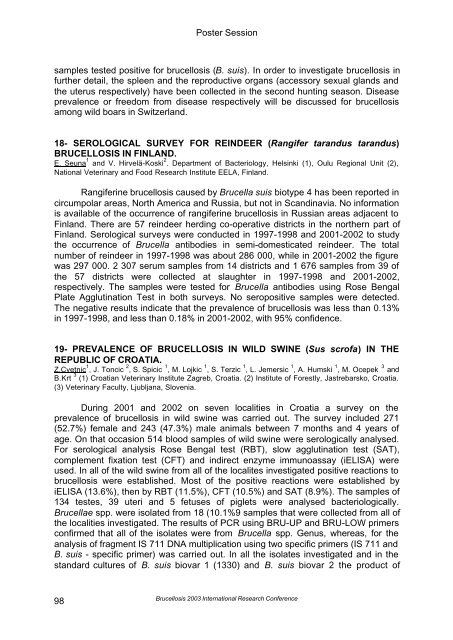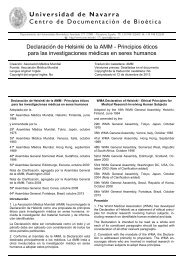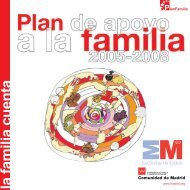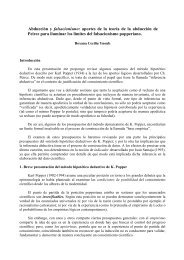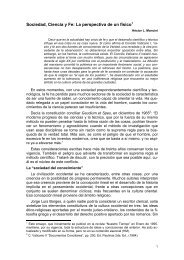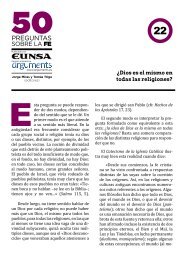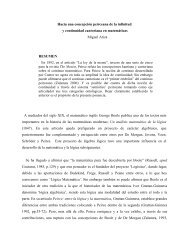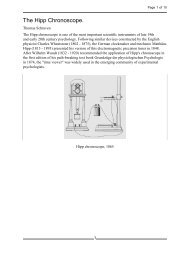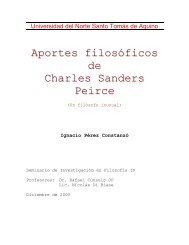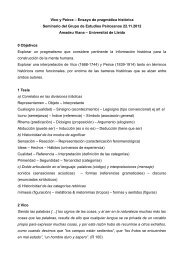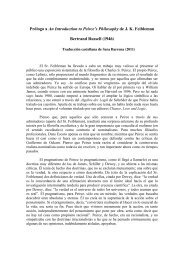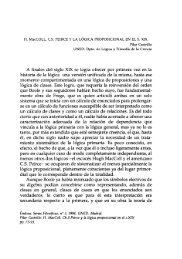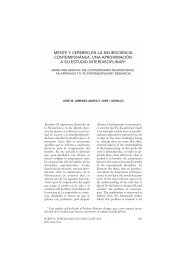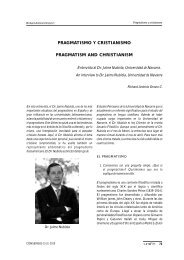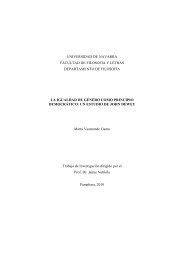Brucellosis 2003 proceedings - PHIDIAS
Brucellosis 2003 proceedings - PHIDIAS
Brucellosis 2003 proceedings - PHIDIAS
Create successful ePaper yourself
Turn your PDF publications into a flip-book with our unique Google optimized e-Paper software.
Poster Session<br />
samples tested positive for brucellosis (B. suis). In order to investigate brucellosis in<br />
further detail, the spleen and the reproductive organs (accessory sexual glands and<br />
the uterus respectively) have been collected in the second hunting season. Disease<br />
prevalence or freedom from disease respectively will be discussed for brucellosis<br />
among wild boars in Switzerland.<br />
18- SEROLOGICAL SURVEY FOR REINDEER (Rangifer tarandus tarandus)<br />
BRUCELLOSIS IN FINLAND.<br />
E. Seuna 1 and V. Hirvelä-Koski 2 . Department of Bacteriology, Helsinki (1), Oulu Regional Unit (2),<br />
National Veterinary and Food Research Institute EELA, Finland.<br />
Rangiferine brucellosis caused by Brucella suis biotype 4 has been reported in<br />
circumpolar areas, North America and Russia, but not in Scandinavia. No information<br />
is available of the occurrence of rangiferine brucellosis in Russian areas adjacent to<br />
Finland. There are 57 reindeer herding co-operative districts in the northern part of<br />
Finland. Serological surveys were conducted in 1997-1998 and 2001-2002 to study<br />
the occurrence of Brucella antibodies in semi-domesticated reindeer. The total<br />
number of reindeer in 1997-1998 was about 286 000, while in 2001-2002 the figure<br />
was 297 000. 2 307 serum samples from 14 districts and 1 676 samples from 39 of<br />
the 57 districts were collected at slaughter in 1997-1998 and 2001-2002,<br />
respectively. The samples were tested for Brucella antibodies using Rose Bengal<br />
Plate Agglutination Test in both surveys. No seropositive samples were detected.<br />
The negative results indicate that the prevalence of brucellosis was less than 0.13%<br />
in 1997-1998, and less than 0.18% in 2001-2002, with 95% confidence.<br />
19- PREVALENCE OF BRUCELLOSIS IN WILD SWINE (Sus scrofa) IN THE<br />
REPUBLIC OF CROATIA.<br />
Z.Cvetnic 1 , J. Toncic 2 , S. Spicic 1 , M. Lojkic 1 , S. Terzic 1 , L. Jemersic 1 , A. Humski 1 , M. Ocepek 3 and<br />
B.Krt 3 (1) Croatian Veterinary Institute Zagreb, Croatia. (2) Institute of Forestly, Jastrebarsko, Croatia.<br />
(3) Veterinary Faculty, Ljubljana, Slovenia.<br />
During 2001 and 2002 on seven localities in Croatia a survey on the<br />
prevalence of brucellosis in wild swine was carried out. The survey included 271<br />
(52.7%) female and 243 (47.3%) male animals between 7 months and 4 years of<br />
age. On that occasion 514 blood samples of wild swine were serologically analysed.<br />
For serological analysis Rose Bengal test (RBT), slow agglutination test (SAT),<br />
complement fixation test (CFT) and indirect enzyme immunoassay (iELISA) were<br />
used. In all of the wild swine from all of the localites investigated positive reactions to<br />
brucellosis were established. Most of the positive reactions were established by<br />
iELISA (13.6%), then by RBT (11.5%), CFT (10.5%) and SAT (8.9%). The samples of<br />
134 testes, 39 uteri and 5 fetuses of piglets were analysed bacteriologically.<br />
Brucellae spp. were isolated from 18 (10.1%9 samples that were collected from all of<br />
the localities investigated. The results of PCR using BRU-UP and BRU-LOW primers<br />
confirmed that all of the isolates were from Brucella spp. Genus, whereas, for the<br />
analysis of fragment IS 711 DNA multiplication using two specific primers (IS 711 and<br />
B. suis - specific primer) was carried out. In all the isolates investigated and in the<br />
standard cultures of B. suis biovar 1 (1330) and B. suis biovar 2 the product of<br />
98<br />
<strong>Brucellosis</strong> <strong>2003</strong> International Research Conference


